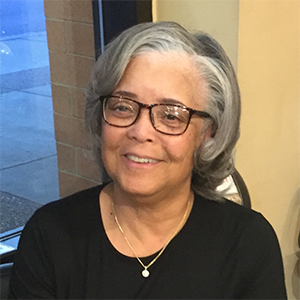
Jones Whyte, who grew up in Washington D.C., is a long-time participant in student-focused Senate committees at the University. She served as a member of the Student Behavior Committee from 2004 through 2010; the Equity, Access, and Diversity Committee from 2004 through 2008; the Provost’s Appeal Committee from 2010 through 2012; and the Senate Committee on Student Affairs from 2013 until this summer, including a stint as chair from 2013-2015. She attributes her commitment to shared governance, and specifically on these committees, to her earliest years in higher education, first as student and then as staff. Her attendance at The Defiance College in Ohio coincided with the tail of Civil Rights activism across the nation. Black students were recognizing that they had the right and the power to make demands, to be treated fairly.
Jones Whyte earned her undergraduate degree in 1969, where she was one of only twenty black students out of a population of just over 1000 undergraduates. Ten of those twenty black students at Defiance were in her class, and nine out of the ten graduated four years later. (Fun fact: She was also a cheerleader.) Jones Whyte continued her education with a master’s degree in Student Personnel from Bowling Green State University, and after being well ensconced professionally, a Ph.D. from the University of Minnesota in Organizational Leadership, Policy, and Development, tracked in Higher Education.
After earning her master’s degree, Jones Whyte returned to Defiance and stepped in to a new position – associate dean of students. For Whyte Jones it was an opportunity to help shape “how I thought the world might look.” At that time, duties were split by gender, and so she was in charge of the women. Naturally, one of her responsibilities was student discipline. At that time, there was no student code of conduct at Defiance, and so consequences for transgression were meted out in a very arbitrary fashion. How one was punished depended greatly on the individual meting it out. Jones Whyte, in collaboration with her colleagues at four other small private colleges, had a hand in drafting the first student code of conduct for Defiance and the other colleges. The code provided new structure and guidelines for student judicial processes. It also provided an opportunity for students to be represented in the process, something Jones Whyte feels very strongly about to this day; her experience has proven that it is easy for students to get lost in decision-making.
That’s why, when the call for committee membership went out at the University of Minnesota, Jones Whyte applied and was selected to serve on the Student Behavior Committee. It seemed a natural fit. Ensuing committee service was a logical progression from the Student Behavior Committee. And all of it was a nice complement to the work she was already doing in the Office for Diversity in Graduate Education. Jones Whyte’s focus has been on increased retention and inclusion of students who might otherwise fall through the cracks, or feel they were not a full member of the University community. In addition to regularly tutoring and counseling students of color and first generation students on how to navigate the higher education environment, she has played a significant role in programming that helps support these same students. Such efforts include the Multicultural Summer Research Opportunities Program (MSROP), which encourages undergraduate students to give graduate education serious consideration; the Community of Scholars Program, which aims to “create an institutional environment that supports the academic and professional success of graduate students who are underrepresented in academia;” and other supportive programming, such as fellowships for a limited number of graduate students to teach at system campuses, a setup that is mutually beneficial: it provides the campuses with much needed diversity in the classroom, while offering the graduate student the opportunity to teach. And while not at work, Jones Whyte’s work continues: she is chair of the Board of Directors for Scholars of Minnesota - Creating Opportunities for Post-secondary Education (C.O.P.E.) Project, a non-profit organization whose mission is "to assist underrepresented students in obtaining educational opportunities, financial support, and other resources they may need to reach their highest academic, professional and personal goals."
When asked why others should get involved in governance, Jones Whyte said, “The only way for the University to fairly represent its members, is for those members to participate. It is the responsibility of everyone to get involved with the structure of which they are a part.” She added that if a person is uninformed on what is happening, they won’t be able to fix the problems they see.
It’s obvious that Jones Whyte has more than fulfilled her duties in this realm. And while she insists she is not tired by the work, Jones Whyte is retiring at the end of summer 2016 to provide the space for others to have the opportunity to continue her work. She’s slowly working to digitize the files in all those boxes so the paper can be recycled, but the stories remain. Her voice and service will be greatly missed, but she encourages others to step in, to be a part of the governance process, and to let their voices be heard.
The Fall 2016 Semester Update from the University Senate is now available to download.
Here's a preview of what you'll find inside:
- A Message from the Chair fo the Faculty and Senate Consultative Committees
- Governance Working For You - Updates from the Civil Service, Faculty, P&A, and Student Consultative Committees
- A View From the Inside - The Intersection of Academic Freedom and Free Speech
- Update from the November joint Faculty and University Senate meeting
- Forum on Student Mental Health
- President's Report
- Provost's Report
- Senate Committees Collaborate on Issues
- Campus Climate and Freedom of Expression
- Fair Labor Standards Act (FLSA)
- Bias Response and Referral Network
- Learning Space Plan
- SCIT Says: Protect Yourself from Identity Theft
READ IT NOW
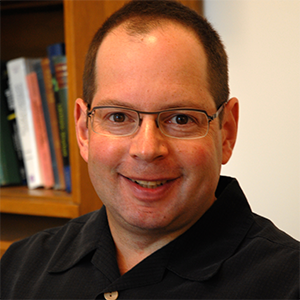
Leo, who grew up in upstate New York, worked himself through the ranks of the faculty at the University starting as an assistant professor in the fall of 1988. His research focused on advanced materials, or more precisely (in layman’s terms), “how different materials blend together to form new materials.” Though offered a position in a government research lab, Leo chose the diversity of academia over a pure research career. He always wanted to work at a Big Ten university, or something comparable to a Big Ten university, because he “like(s) the fact that we are really trying to educate the people in the state and surrounding states. And being at a big school allows us to do different things.” One of those different things for Leo has been participating in shared governance.
Leo served as a representative in the Faculty Senate from 1995-1998. He first began committee work – which he finds more fruitful - in 2002 on the Faculty Academic Oversight Committee for Intercollegiate Athletics (FAOCIA). “Art Erdman from Mechanical Engineering knew I golfed. That was athletic enough [for me] to be appointed,” he quipped. Leo currently serves as Faculty Athletics Representative to the Big Ten and NCAA. In this role he also serves on the Advisory Committee on Athletics and (again) on the FAOCIA. Additionally, he serves on the ROTC subcommittee and has served on the Committee on Committees (with one term as chair).
The moment that Leo felt the most satisfied with his contribution to Senate work was in his initial years on the FAOCIA, soon after the basketball program scandal in 1999. Through the actions of committees, the Senate was able to move the pendulum back to assure the “relationship between the athletic departments and academic departments was a good one” while maintaining necessary firewalls between the two. He added that Senate action assured a level of academic integrity that has maintained to this day.
Leo is one of the small handful of seasoned faculty whose continued participation contributes to the institutional memory that serves committee work so well. As he said, he’s not looking to build his resume at this point. He, and other long-serving faculty, truly have the good of the institution at heart. But Leo also believes that more faculty should participate, so that we don’t hear from the same voices year after year. Leo considers it “integral that new faculty are included and recognized in governance, so that it continues to work as well as it has for so many years.”
In other words, Leo has fully embraced the traditional idea of a university: a place where all participants are engaged not only in learning, but also in active discussion and decision-making regarding the direction the institution should take. Sacrificing a serviceable handicap is worth it for him. But his involvement in shared governance is not solely altruistic. He also said that “it’s fun to get to know faculty from outside my department and college. This is and has been the best part of governance.”
P&A News for November 2016. Highlights include Spotlight on Meaghan Thul, who manages the University's Parent and Family Program.
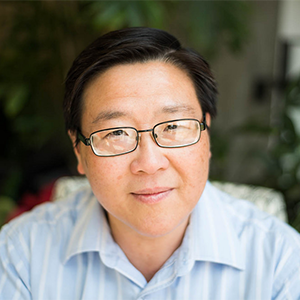
In Ng’s view, she was a part of University governance from day one. Every faculty at UMM is a part of the campus assembly, the campuswide governance body. And, Ng adds, “UM-Morris is a very egalitarian campus, and so technically, I became involved in shared governance when I started as a regular faculty.”
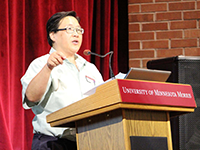
Ng admits that when she was a brand new faculty, she was very naive. “I had some weird notion that college administrators made lousy professors,” she says. A few years years later, a chief administrator retired and there was some shuffling of campus leadership. Several faculty, including Ng, were asked to take on administrative duties as part of their appointments. Ng asked her then boss, “Why do you take all these award winning and excellent teachers from the classroom and make them administrators?”
The response was, “Would you rather I choose lousy teachers to lead academic affairs?” That, Ng says, changed her perspective and stereotype of administrators. In turn, Ng says she has learned much by being on systemwide committees and considers herself lucky to be able to serve. “I am a better faculty and a more mindful academic administrator for having served on systemwide shared governance,” she says. Ng says when a solution presents itself or is arrived at, she asks if that solution solves more problems than it creates.
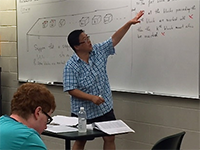
An essential skill, Ng notes, and one that she continues to hone, is learning how to balance the “Big Picture” and the detailed ramifications of policies. She said, “Finding a healthy balance between being consultative and moving forward is also another key to how I usually approach governance.”
P&A News for October 2016. Highlights include Spotlight on Alyssa Maples, academic advisor, School of Kinesiology.